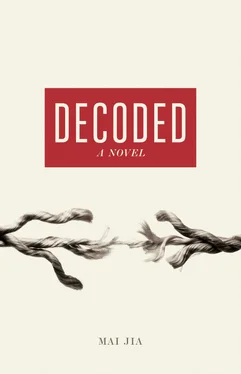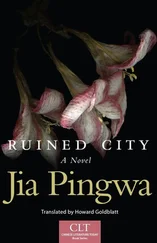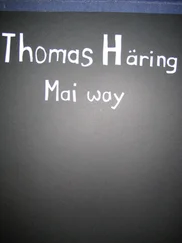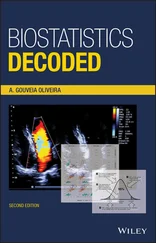Mai Jia - Decoded
Здесь есть возможность читать онлайн «Mai Jia - Decoded» весь текст электронной книги совершенно бесплатно (целиком полную версию без сокращений). В некоторых случаях можно слушать аудио, скачать через торрент в формате fb2 и присутствует краткое содержание. Год выпуска: 2014, Издательство: Allen Lane, Жанр: Современная проза, на английском языке. Описание произведения, (предисловие) а так же отзывы посетителей доступны на портале библиотеки ЛибКат.
- Название:Decoded
- Автор:
- Издательство:Allen Lane
- Жанр:
- Год:2014
- ISBN:нет данных
- Рейтинг книги:3 / 5. Голосов: 1
-
Избранное:Добавить в избранное
- Отзывы:
-
Ваша оценка:
- 60
- 1
- 2
- 3
- 4
- 5
Decoded: краткое содержание, описание и аннотация
Предлагаем к чтению аннотацию, описание, краткое содержание или предисловие (зависит от того, что написал сам автор книги «Decoded»). Если вы не нашли необходимую информацию о книге — напишите в комментариях, мы постараемся отыскать её.
Decoded — читать онлайн бесплатно полную книгу (весь текст) целиком
Ниже представлен текст книги, разбитый по страницам. Система сохранения места последней прочитанной страницы, позволяет с удобством читать онлайн бесплатно книгу «Decoded», без необходимости каждый раз заново искать на чём Вы остановились. Поставьте закладку, и сможете в любой момент перейти на страницу, на которой закончили чтение.
Интервал:
Закладка:
I spent a sleepless night.
During the morning of the following day, the same man, this Administrator Lin, came to find me. This time, however, his rough demeanour from the night before had disappeared. He went to great pains to apologize for his earlier presumptuousness and then politely returned my credentials and notebook. It was clear that the results of his investigation had been satisfactory, as I had expected. What caused me great surprise was that he also passed along a piece of very good news: someone higher up wished to speak with me.
With him as escort, I swaggered through three security checkpoints, ultimately entering the most secure area of the complex.
The first of the checkpoints was an armed police post with two guards on duty. Both carried pistols and truncheons. The second checkpoint was manned by the PLA. It too had two guards on duty, both armed with crow-black semi-automatic rifles. Their guard post was ringed with barbed wire and there was a small circular military pillbox made of stone adjacent to the gate. Inside were a phone and what looked to be machine guns. The third checkpoint was manned by a single guard in plainclothes who walked back and forth. He carried no weapon, only a walkie-talkie.
To tell you the truth, even today I am not entirely sure what department or sector Unit 701 belonged to: was it the military, the police or the local government? From my observations, almost everyone who worked there dressed casually, with only a few in military uniform. In the car park you could see both local licence plates and military ones, although the latter were much fewer in number. From the enquiries I made to different people I always received the same response: this was a question I shouldn’t ask, and what’s more, they didn’t know the answer. In any case, it didn’t matter whether it was a military unit or a civilian unit, all that was important was that it was a unit vital to the country’s well-being — after all, the military and civilian sectors are both of the country. Of course, that was true. What more was there to say? All nations need this type of agency, just as every household has its own first-aid kit. It is essential. When all was said and done, there was nothing really strange about it at all. It would be strange, in fact, for a country not to have this type of agency. But I digress.
After passing through the three checkpoints, we came upon a perfectly straight, narrow road, hemmed in on both sides by immense trees covered in lush foliage. The incessant chirping of the birds up in the trees echoed down, giving you the feeling that you had wandered off the beaten track and into some forest reserve. Proceeding forward, it seemed as though we wouldn’t encounter anyone, but then very suddenly my eyes fell upon a stunning six-floor building that towered up out of the trees. Its exterior façade was adorned with russet coloured ceramic tiles, giving it a stately and reassuring air. In front there was a large open space, the size of half a football pitch. On either side were rectangular grassy lawns. In the middle there was a square bed of flowers brimming with colour, a stone statue placed amid the fresh flowers — a sculpture that in outline and colour was reminiscent of Rodin’s The Thinker . At first I thought that this statue was indeed a reproduction of Rodin’s work, but upon a closer inspection, you could see that the seated figured was wearing a pair of spectacles and the character for ‘soul’ was prominently inscribed below it. From a distance, it was The Thinker . Later, after thoroughly scrutinizing it, I couldn’t help but feel that the statue looked vaguely familiar. I just couldn’t put my finger on it. Asking Administrator Lin, I finally discovered who the statue was in honour of: Rong Jinzhen.
I stood in front of it for a long time. With the sun shining down upon it, with Rong Jinzhen’s chin firmly supported by his left hand, it seemed as though the statue’s eyes were fixed upon me; they shone radiantly. The statue shared some similarities with the Rong Jinzhen who now resided at the Lingshan nursing home. It was like looking at a man in the fullness of life and then seeing him in old age.
Taking leave of the statue, Administrator Lin — contrary to my expectations — led me round the back to a small two-storey westernstyle structure of greenish-black brick. I soon discovered that this building contained a remarkably Spartan parlour which was used to receive visitors. I was instructed to wait in the parlour, and before long I heard a distinct metallic clicking sound coming from the corridor outside. Not long afterwards an elderly man leaning on a walking stick made his way into the room. His eyes fell upon me and he said, ‘Ah, hello comrade reporter. Please, let’s shake hands.’
I stood up quickly to exchange a handshake and then invited him to sit on the sofa.
Sitting down, he said, ‘It should have been me going to meet you, because after all I am the one who requested to see you. But, as you can see, I don’t get around as easily as I used to, so I asked you to come here.’
I replied, ‘If I am right, you must be the man who went to recruit Rong Jinzhen at N University: Mr Zheng.’
He gave a roar of laughter. Pointing his cane at his lame foot, he said, ‘That’s what gave me away, isn’t it? You reporters are not all the same, eh? Ah, not bad, not bad. I am indeed that man, so now may I ask who you might be?’
I thought to myself: surely you’ve seen my credentials? Do you still need to ask? But out of respect for him, I quickly introduced myself.
After listening to my introduction, he waved a number of photocopied pages in front of me, saying, ‘How is it that you came to know of this?’
What he was waving about was a copy of my notebook!
I couldn’t help but ask, ‘I know I did not give my consent, so how is it that you copied my notebook without permission?’
‘Please don’t take offence; we really had no other option. There were five people who each felt a need to examine your notebook and if we were to pass it along to each in turn, I’m afraid it would’ve taken much more time before we could have returned it to you. Now, everything is fine, all the interested parties have read it and there are no issues — you could say that your notebook touches on nothing which counts as classified information and so we have returned it to you. If that had not been the case, well, it would have remained with me.’ He laughed a moment and then continued, ‘I do have one question that has plagued me since last night. How is it that you came to know of this? Please, comrade reporter, could you enlighten me?’
In the simplest manner possible, I related to him my first-hand experience at the Lingshan nursing home.
He listened, smiled knowingly, and said, ‘Oh, so that’s it. You are the child of someone in our organization.’
‘That’s not possible,’ I replied, ‘My father was a mechanical engineer.’
‘How can that be? Tell me, who is your father? Perhaps I know him.’
I told him who my father was and then asked if he knew him.
‘No, I don’t,’ he replied.
‘Exactly,’ I said. ‘How could you know him? My father can’t have been a member of your organization.’
‘Ah, but each and every one of the patients in the Lingshan nursing home is one of ours,’ he said.
I was truly overwhelmed by this news. My father was close to death and now suddenly I didn’t even know who he was. It goes without saying that had Director Zheng not mentioned this by chance, I would never have known about my father’s true identity — just as Master Rong was kept in the dark about Rong Jinzhen. Now I could understand why my father had never shown my mother and I the love we needed — why my mother had wanted a divorce. It seemed as though she had treated him unjustly. But the problem wasn’t there. Rather, the problem lay in the fact that Father had accepted this unfair treatment rather than trying to defend himself. What can I say about that? Was it conviction, or inflexibility? Worthy of respect or a source of sorrow? I suddenly felt a terribly suffocating feeling welling up in my heart. It would not be until six months later, in conversation with Master Rong about these events, that I would finally come to feel that my father’s stoicism ought to be respected and not mourned.
Читать дальшеИнтервал:
Закладка:
Похожие книги на «Decoded»
Представляем Вашему вниманию похожие книги на «Decoded» списком для выбора. Мы отобрали схожую по названию и смыслу литературу в надежде предоставить читателям больше вариантов отыскать новые, интересные, ещё непрочитанные произведения.
Обсуждение, отзывы о книге «Decoded» и просто собственные мнения читателей. Оставьте ваши комментарии, напишите, что Вы думаете о произведении, его смысле или главных героях. Укажите что конкретно понравилось, а что нет, и почему Вы так считаете.












